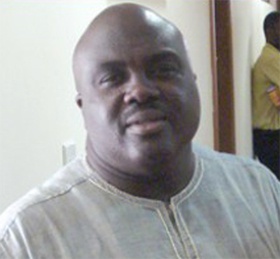The Ministry of Local Government and Rural Development has engaged media practitioners to discuss a four-thematic -area action plan develop by the ministry.
Journalists from the southern sector participated in the discussion in which suggestions and contributions were taken to be imputed into the action plan born out of a systemic study and series of consultations held with stakeholders in the Local Government sector.
The four thematic plans are; Environmental Sanitation, Decentralization and Financial Empowerment of Assemblies, Small and Micro Enterprises Development and Job Creation and Social Housing.
Mr Julius Debrah, Minister of Local Government and Rural Development, said the ministry would engage the media, create religious platforms and collaborate with chiefs and traditional authorities to create public awareness and promote attitudinal change.
He said the plan was also to remove heaps of garbage at all refuse dumping sites across the country, especially in Accra and other commercial cities, and to educate people on the separation of paper, plastic and liquid waste.
He said the ministry, on the Decentralization and Financial Empowerment of Assemblies, had drawn a programme to enhance the street-naming exercise, Public-Private Partnership (PPP) projects financing, local economic development programme, capacity building and efficient and strong partnership with institutions.
Mr Debrah said the street-naming and proper numbering project was to improve the revenue generation of assemblies which would empower them financially to carry out developmental projects and the local economic development programmes without depending on Government's subventions.
He said the PPP financing of projects would be a joint investment by private and public institutions to create a strong and efficient partnership and an enabling environment to promote business activities.
“It would also build the capacity of chief executives and staff of assemblies by impacting them with knowledge and the needed expertise to develop, manage and monitor and evaluate the activities of revenue mobilization and development.
“The Minister said the small and micro enterprise development and job creation would involve the provision of toilet services, water services for domestic and commercial purposes, agro processing, hairdressing and tailoring and other trades and commercial activities viable,” Mr Debrah said.
He said this would engage the unemployed youth in the country to own Small and Micro businesses as well as create opportunity for export activities to earn the country more income to support government developmental programmes.
Mr Debrah said housing was one of the major problems Ghanaians are faced with and that was the reason the ministry had developed a social housing programme policy which was affordable with a flexible payment plan being piloted in the Tamale Metropolitan Area.
He called on the media and all institutions and stakeholders to partner with the ministry in executing the action plan to promote a clean environment and development in all sectors of Ghana’s growing economy.
Regional News of Monday, 15 September 2014
Source: GNA
Local Government Ministry engages media on action plan

















